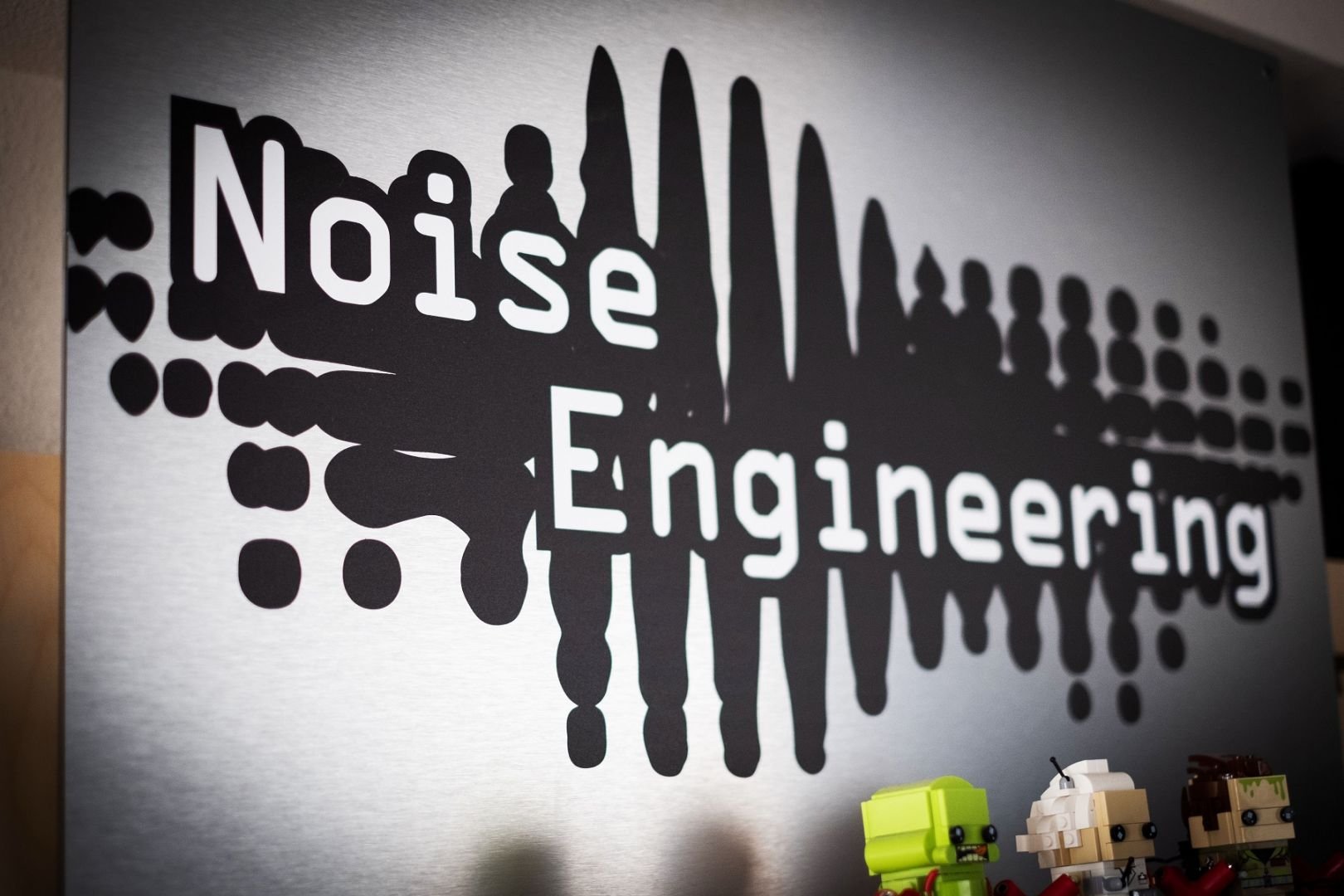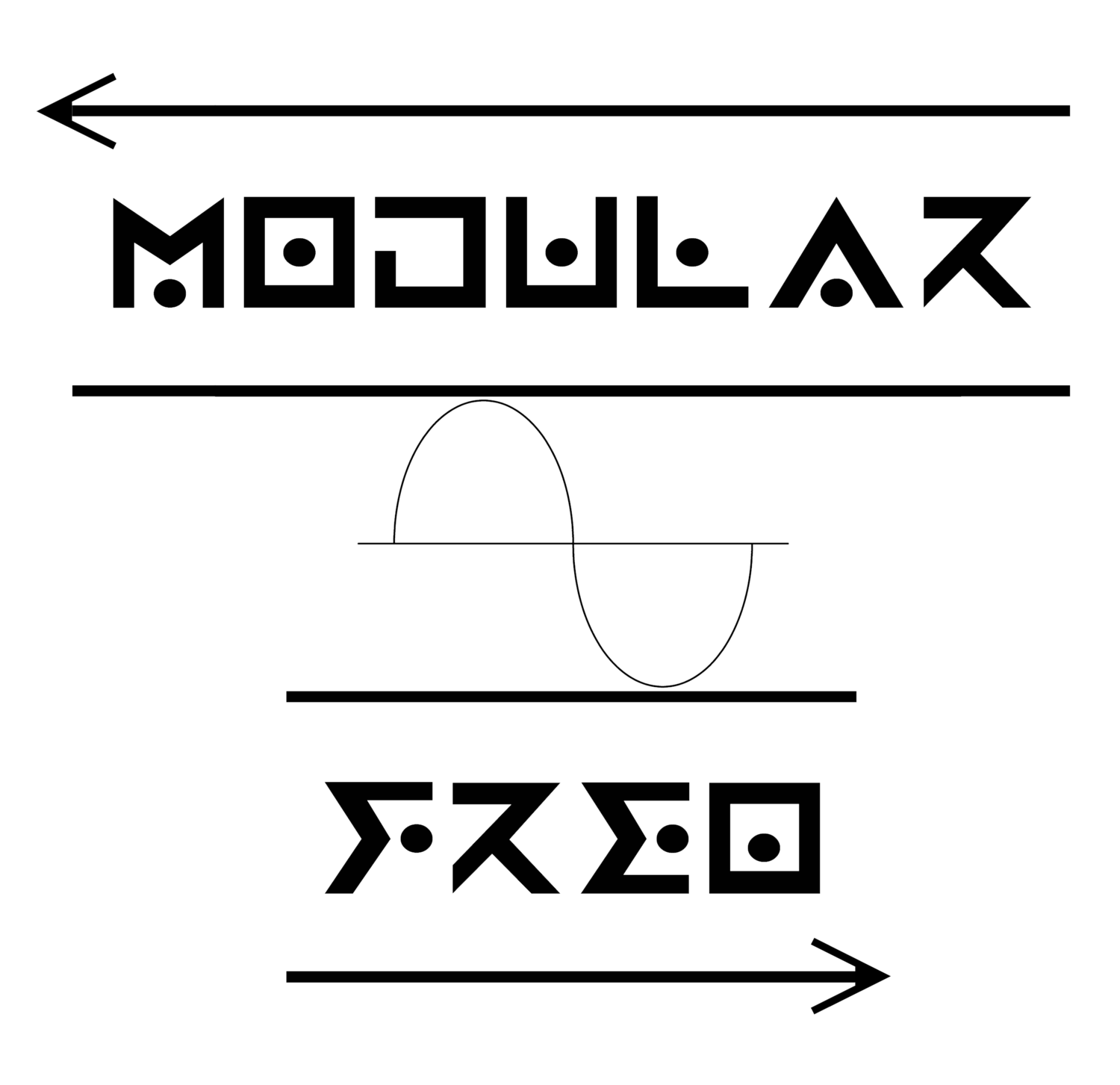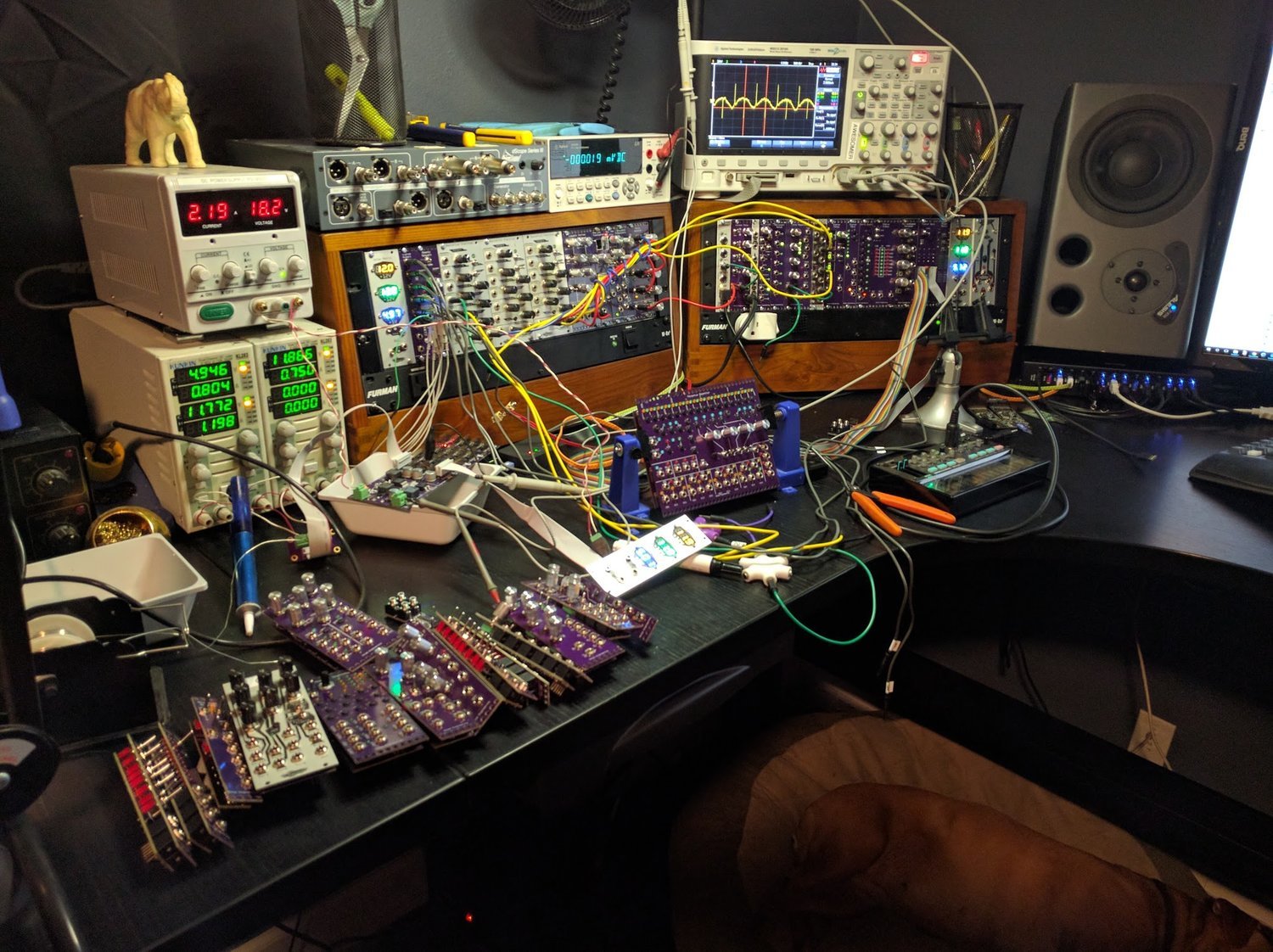
THE FUTURE OF MODULAR SYNTHESIS(AN INTERVIEW WITH NOISE ENGINEERING)
Noise Engineering started when co-founder Stephen made a prototype Ataraxic Translatron on a dare one weekend. One module led to another and Noise Engineering is now known for digital oscillators, quirky sounds, and their “Latin-ish” naming scheme.
Noise Engineering currently makes hardware products in Eurorack and in 5U, and Rack Extensions for the Reason platform.
Based in sunny Los Angeles, all products are designed in-house by husband-and-wife team Stephen and Kris, with copious input from tester/modular extraordinaire Markus, and are manufactured in Southern California.
Tim Butler aka Special Circumstances caught up with Stephen of Noise Engineering to have a chat about all things modular.
Why Eurorack? What does it mean to you? Where does the drive for you to build Eurorack come from?
A few years ago, a co-worker bought a Eurorack system. Being the sort of person I am, I started critiquing a lot of these modules and my friend basically called me out on it *laughs*. He was basically like “stop whining about my modules unless you can actually make some”. And so I made him a module which actually became our first product.
Designing a standalone synth would be a tremendous amount of work (though we would love to work on one too). Eurorack, on the other hand, is a lot more flexible. It’s very freeing because you can take a very simple concept and turn it into a product really fast. And they’re just a lot of fun just to work on.
What are your professional backgrounds, pre-Noise Engineering?
I spent over 10 years as an audio programmer working in video games, and got very burnt out because that’s kind of what the video game industry does to people! And my wife Kris was a biologist at the time. She also was getting burnt out with her career. We were fortunate enough to get to a point where we could do Noise Engineering full-time, and so we took that leap.
What are your musical influences and how do they influence your module design choices?
I’m old enough to have gone through a few music fads in my lifetime, and you certainly hear specific time periods in some of our modules. You can probably also tell that I listen to a lot of industrial and techno, just by the way our stuff sounds.
Your modules are considered ‘modern classics’, and have become quite ubiquitous in modular setups around the world. They are quite unique in both function and sound — it’s as if you’ve found your niche. When coming up with new modules, are you actively looking for gaps in the market, or do you design the modules and hope that people catch on to them?
Thanks! And both! We try to not make a product that already exists. With some of our utility modules, it’s kind of hard, as one of our goals is to work up to being able to make a full system.
But in general, we try not to imitate unless we really need it for that context. In any case, we always try to make it at least somewhat of a different take. When coming up with ideas, it usually starts with “I would really like this module” and then we have to consider if it already exists. And if the answer is “no”, then we’re like “OK — we’ve gotta make that”.
If it does already exist, then it usually ends up being a lower priority, or we just don’t bother with it because we don’t want to make exact replicas of existing modules. It really has to be a unique take if we’re going to make something close to something that already exists.
Talk us through a bit of your creative process when you design modules. Is it the same process every time, do you have a set way of how you do it, or does it just develop organically?
I have a notebook that has over a hundred ideas in it. Most of them won’t ever become modules but it’s where we keep the master list of ideas. Sometimes we pull ideas from there and they combine in interesting ways, though, so it’s handy to have them in the book.
And I guess these days we do have more of a pipeline. We get people sending us module ideas all the time, which is great, but sometimes they are things that either don’t fit within our aesthetic or just won’t realistically work.
But it’s great, it’s always fun to just hear people’s ideas. We talk to a lot of musicians who have specific requests or want something that can make a particular type of sound. The Manis in fact, was developed directly with two musicians. We have another whole line slated for next year that is based on some interactions we had with another musician.



